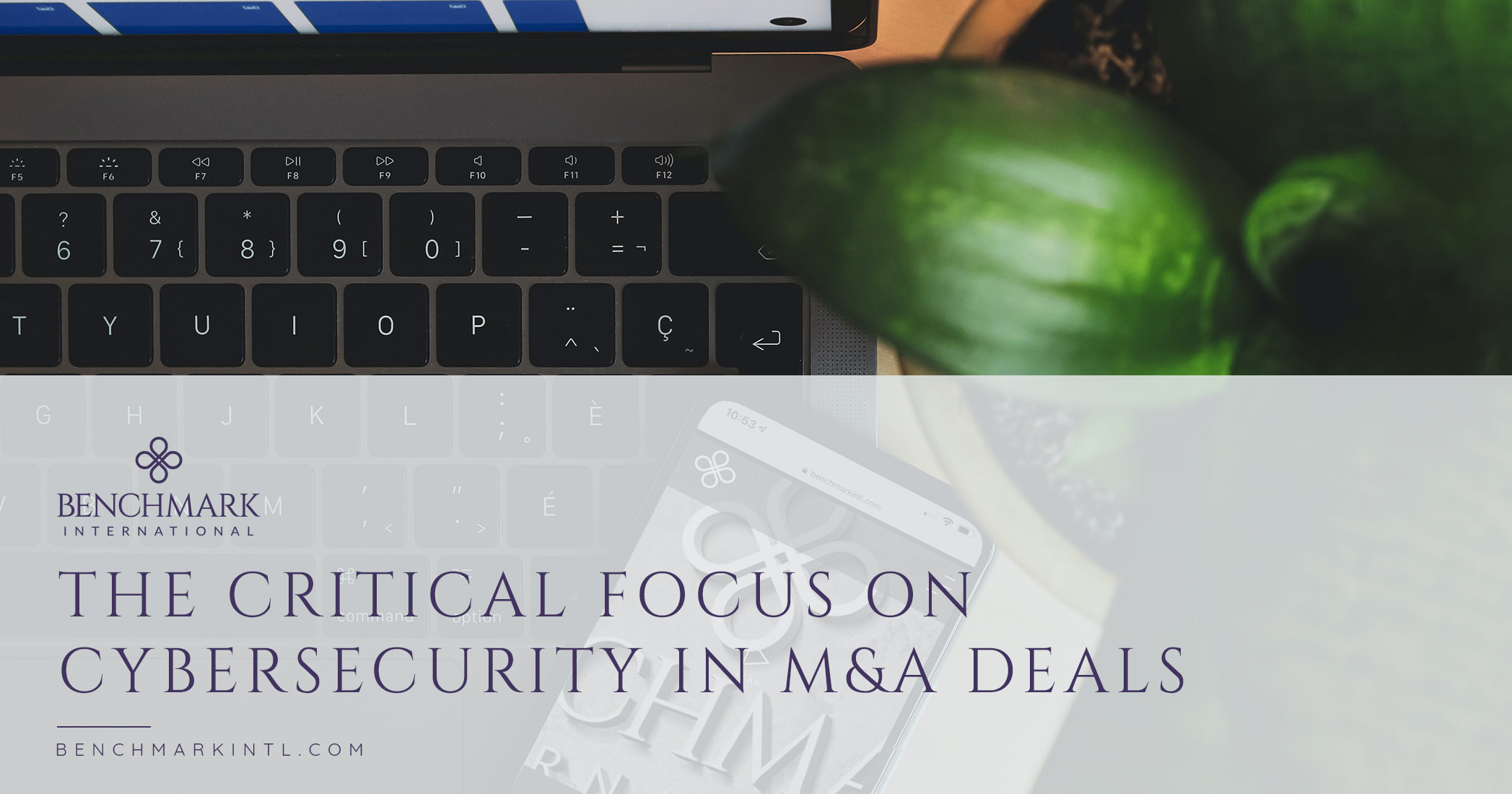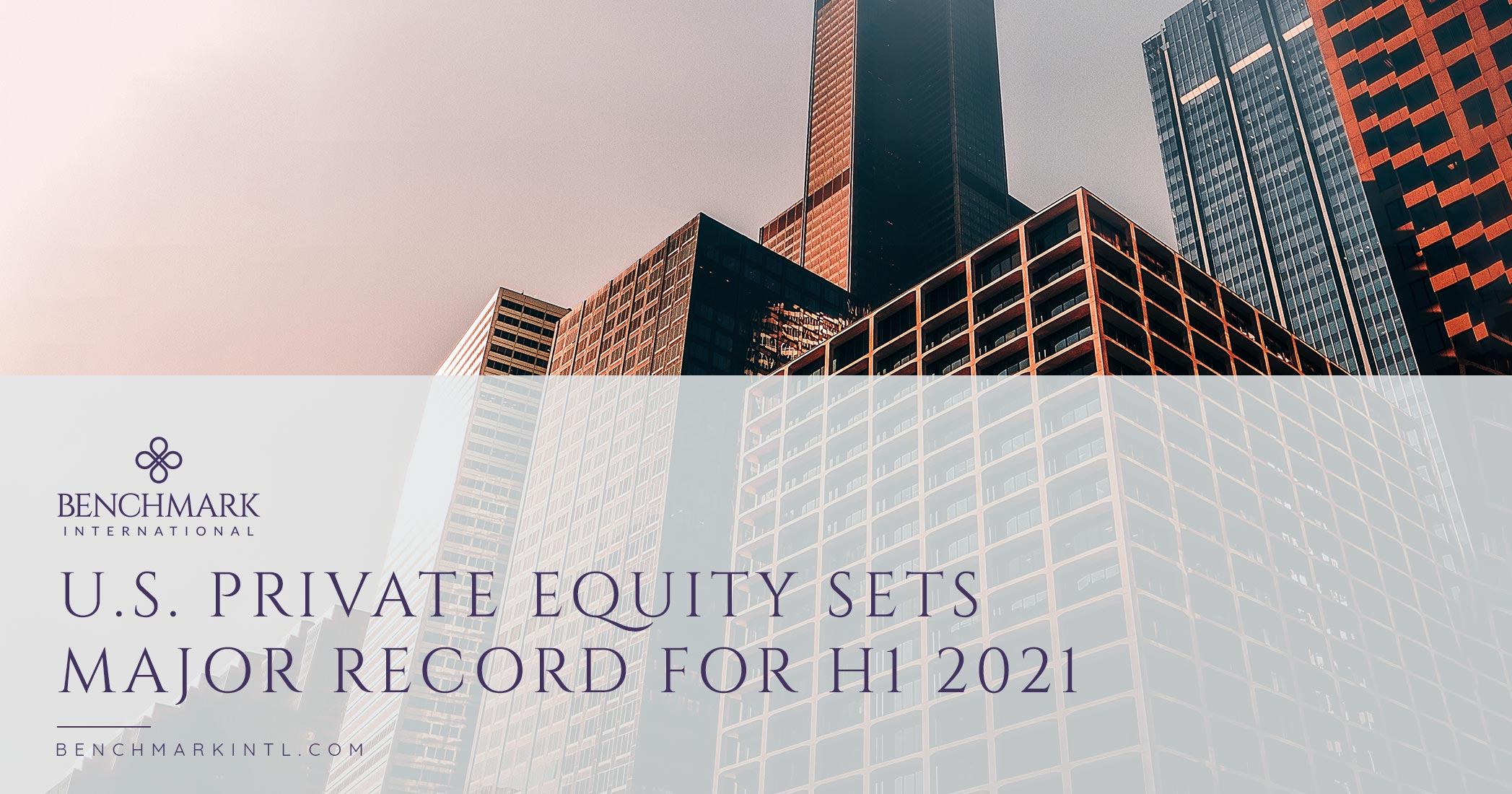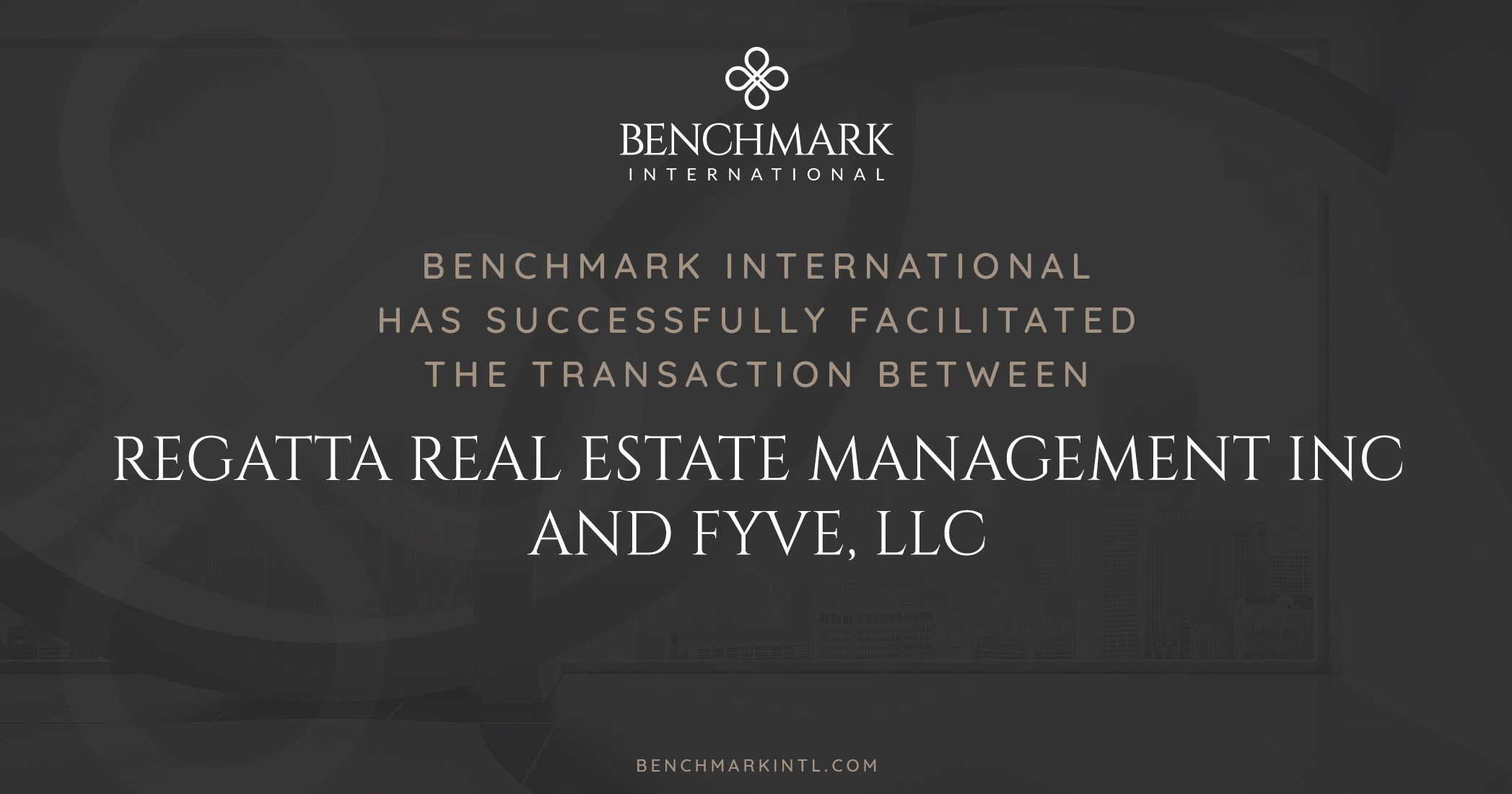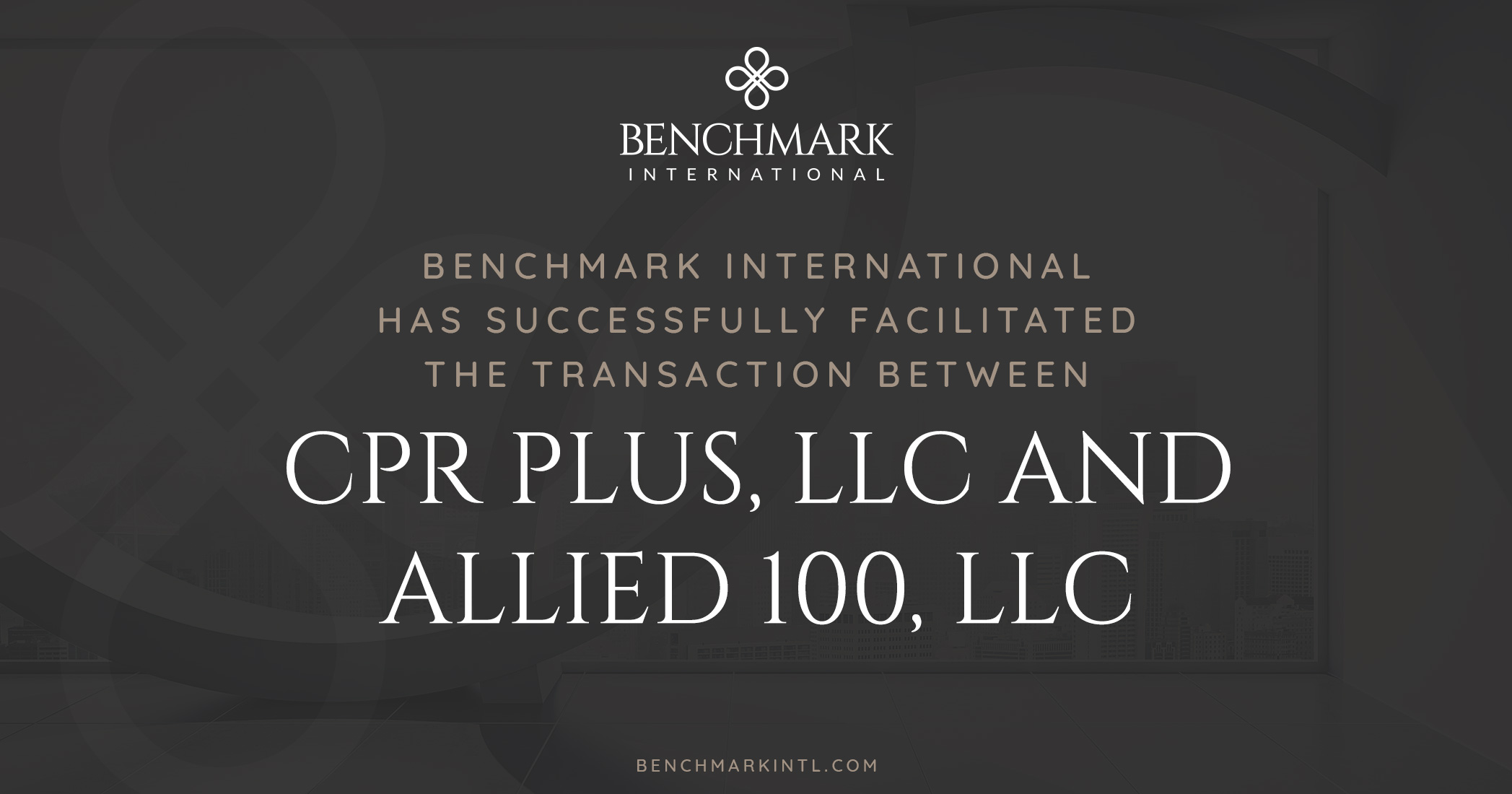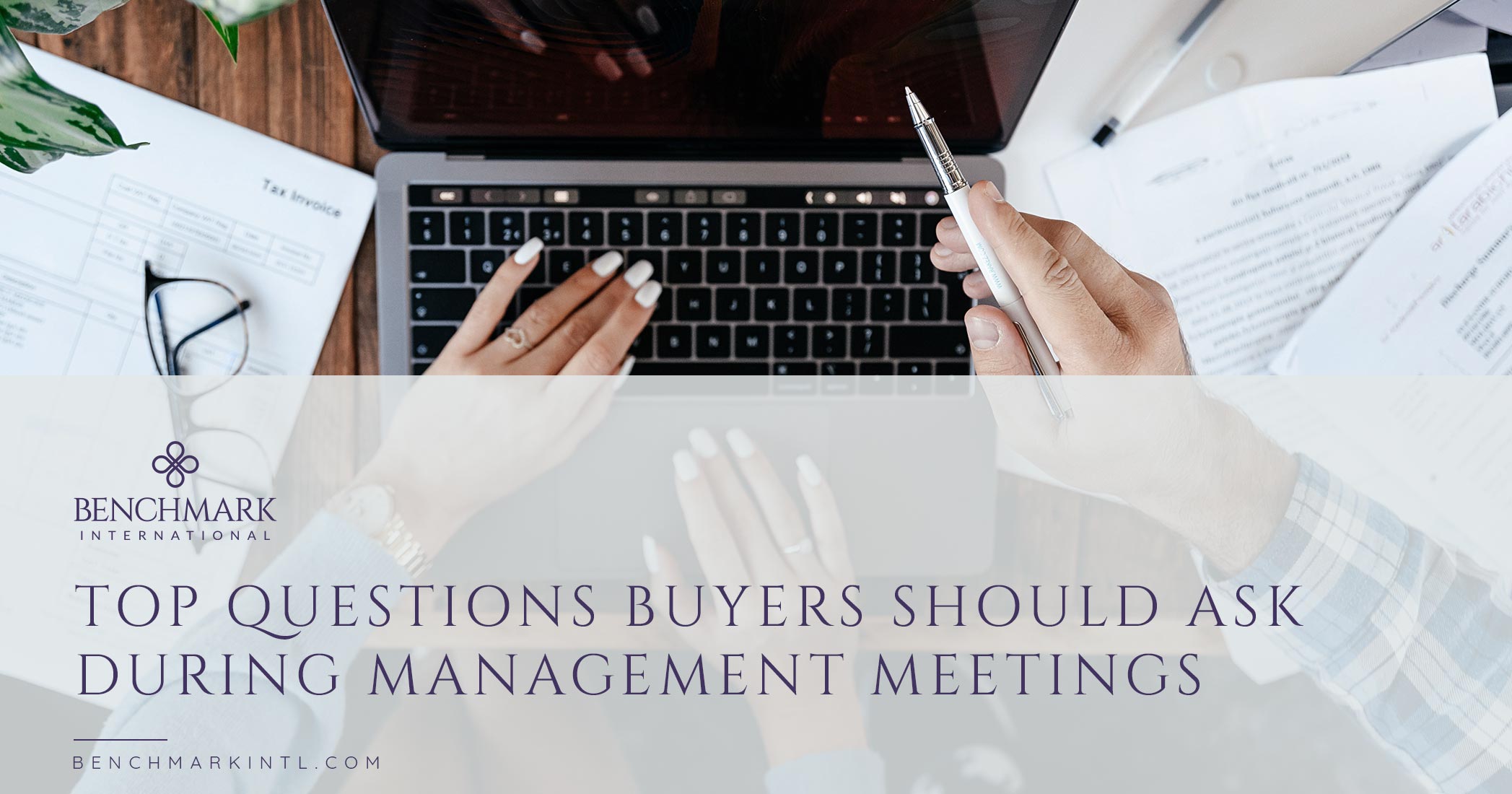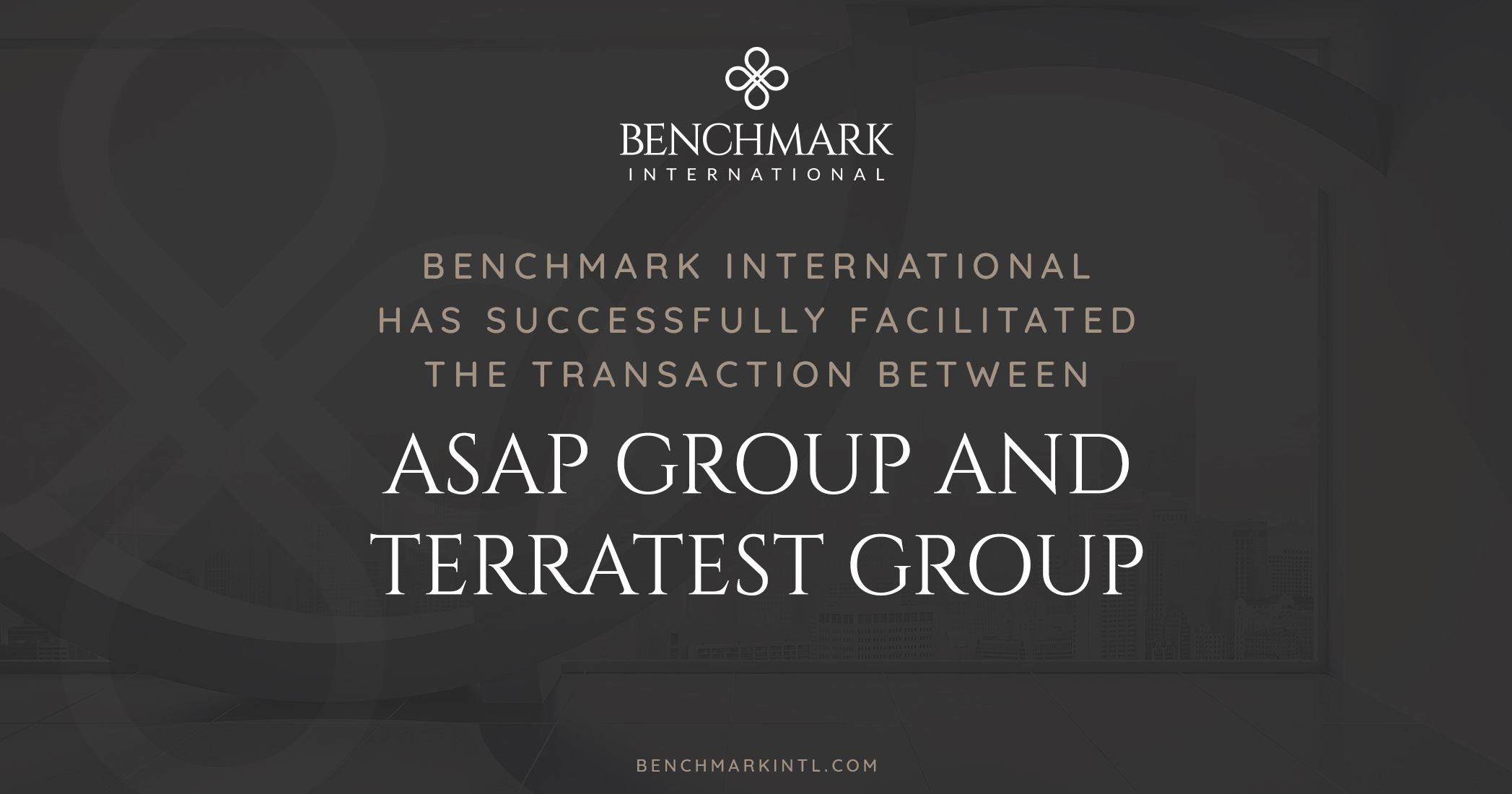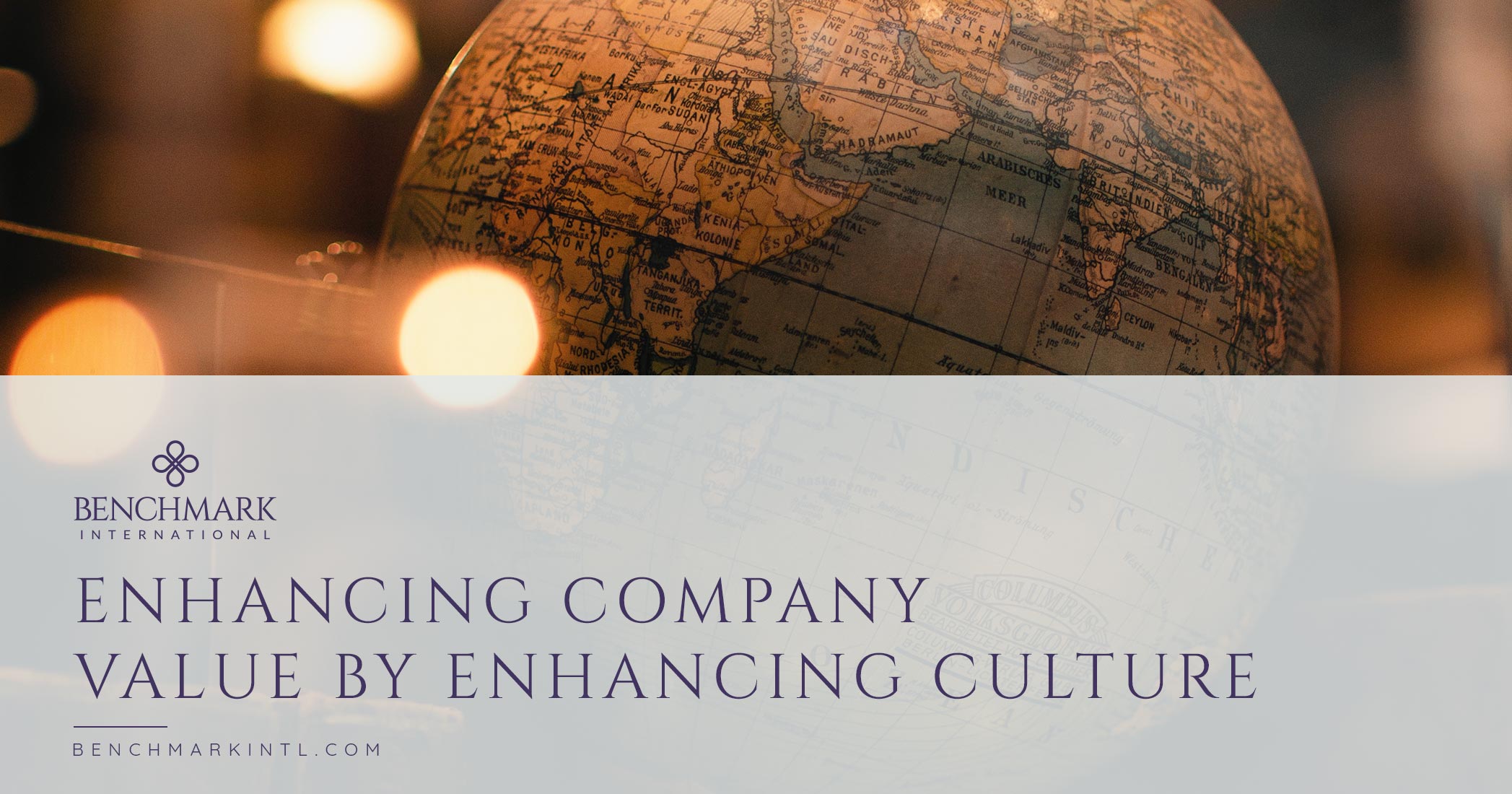The seller, Warnock Tanner & Associates, has been operating a successful IT services/management company for over 25 years. WTA Consulting’s customers range in size from small local businesses to Fortune 500 businesses. WTA specialized in Complete Consulting, Development & Implementation Services for Oracle Primavera.
READ MORE >>Archives
Benchmark International Successfully Facilitated the Transaction Between Warnock Tanner & Associates and Computech
The Impact of U.S. Infrastructure Investment on M&A
The U.S. Senate recently passed the $1.2 trillion bipartisan infrastructure bill, titled the Infrastructure Investment and Jobs Act (IIJA), to improve the country’s roads, bridges, and utilities. The bill does face an uncertain future in the House of Representatives, where its support is more limited. Still, the Democratic Party could use the reconciliation process to get the bill passed into law.
The bill includes:
- $73 billion for electric grid and power infrastructure
- $66 billion for passenger and freight rail
- $65 billion for broadband investments
- $55 billion for water systems and infrastructure
- $50 billion for Western water storage
- $39 billion for public transit
- $25 billion for airports
- $21 billion for environmental remediation projects
- $17 billion for ports and waterways
- $15 billion for electric vehicles
- $11 billion for road safety
So, what might this all mean for M&A?
READ MORE >>Share this:
The Critical Focus On Cybersecurity In M&A Deals
The recent cyberattack on the Colonial Pipeline in the U.S. is a glaring reminder of the vulnerabilities that all industries face, as well as the costly repercussions that can be a result of such a situation. Colonial Pipeline Co. paid the hacker group $5 million to have the company released from the ransomware to restore service to the critical pipeline. This actually turned out to be a wasted $5 million. For that high price, the hackers provided the company with a decrypting tool to restore its disabled computer network. But this tool was too slow, and Colonial ended up using its own backups to restore the system.
READ MORE >>Share this:
The Current State Of Commercial Real Estate
The COVID-19 pandemic has had a negative impact on all classes of commercial real estate. Yet, it also created some new opportunities within the commercial real estate (CRE) market, such as affordable rental prices, improved digital communication and payment facilitation, as well as new opportunities for business owners and investors. And further recovery is well underway.
CRE prices fell 11% between March and May of 2020. Since July, prices increased 7%, erasing over half of those pandemic declines. With investors sitting on wealth, more investment in stocks and bonds took place, which pushed prices up and interest rates down. With inflation being a growing concern, more investors may look to commercial properties with leases that have built-in rent increases to keep pace with inflation.
READ MORE >>Share this:
Growing Business Trends For 2021-2022
Our world continues to change, and businesses must remain adaptive in order to keep pace with their competition and consumer demands. Thanks to new technologies, changing customer priorities, societal movements, and of course, repercussions from the COVID-19 pandemic, business owners can expect certain industry shifts that began leading up to 2021 to continue into 2022.
READ MORE >>Share this:
2021 Energy & Sustainability Report: Progress, Trends, And M&A
The COVID-19 pandemic revealed to the world just how unprepared entire business sectors can be when it comes to unexpected events of mass proportion, and just how delicate our global supply chains actually are. COVID has been a health crisis that impacted lives, economies, and industries. Climate-driven events and disasters occur on a more concentrated scale but have proven to be extremely costly and disruptive to multiple sectors in various geographies—a problem that appears to be growing more prevalent.
READ MORE >>Share this:
Medtech M&A On Track For Strong Second Half Of 2021
In the first half of 2021, medtech M&A deals already surpassed the total number of deals from last year, and this bustle in activity is forecast to continue through the second half of the year, as medtech companies have stockpiled billions of dollars in cash. The dollar value of deals in 2021 is also expected to far outpace that of 2020. Eleven megadeals were announced in H1, with a total deal value of around $128 billion.
Medtech M&A activity kicked off 2021 right out of the gate, with at least 10 deals announced in January alone. Companies emerged from 2020 flush with cash reserves and were ready to spend on dealmaking. The medtech sector recorded a total of 33 deals in the first half of 2021. That's up from 25 total in all of 2020. In fact, the first quarter of 2021 was the busiest for medtech M&A since 2016. While the initial rapid momentum may have slowed, the second half of 2021 should be abundant with new deals.
READ MORE >>Share this:
U.S. Private Equity Sets Major Record For H1 2021
Data released in a recent report by Pitchbook shows the unprecedented performance of U.S. Private Equity (PE) during the first half of 2021, continuing its intense pace for the third quarter in a row. PE firms closed on 3,708 deals worth a combined $456.6 billion. That’s almost two-thirds of the $711.6 billion deal value recorded in the entire year of 2020, and the two years prior.
READ MORE >>Share this:
HVAC: A Consolidating Market
When financial buyers think of HVAC contractors, they see an industry ripe for consolidation. The trend of HVAC consolidation started a few years ago and has not slowed down.
Throughout the United States, there are thousands of independent HVAC contractors. Financial buyers, such as private equity, see the opportunity to consolidate the independent firms to create a regional or national presence. The market is roughly a $20 billion industry that is fairly recession proof, especially throughout warmer states, such as Texas and Florida.
Private equity seeks opportunities to expand businesses through acquisition and organic growth. Once they have a foothold in the industry, they can add related services, such as plumbing services, to the roll-up strategy.
HVAC consolidations tend to be in high demand in markets that have a need for the services. Some focus on new construction, while others focus on servicing existing units that can be viewed as a recurring revenue model. The competition in the local market is key when an acquirer is looking at an acquisition. Is the HVAC target company a big fish in a small pond, or vice versa? What is the growth potential within the market? Cities and towns that are growing tend to be more attractive.
Additionally, HVAC contractors might specialize in commercial or residential services. Depending on the roll-up strategy, the acquirers might have different goals on what they are looking for in the consolidation.
The consolidation allows for a larger firm to take advantage of perks that a smaller firm might not have access to due to size or cost prohibition. For example, the roll-up might be able to build out software and accounting systems to help increase the efficiencies of the company or recruit top executives to add a level of professionalism to the company.
Having this type of option within the market allows for the seller to have options about their company’s next phase. Having a larger, growing firm complete the acquisition allows the seller and the company’s employees opportunities that the selling firm could not achieve on its own. The seller may stay on post-closing in a different capacity or retire and allow employees to step into the management role. In any case, mergers and acquisitions can be an ideal solution for companies in the HVAC sector.
READ MORE >>Share this:
What To Look For When Choosing An M&A Advisor
Selling your business is a paramount moment in your life. It’s something you absolutely want to get right so that you can extract the most value out of the deal—and so that you are protected from being swindled by a savvy buyer. It also takes a great deal of time and energy to sell a company, which can be rather difficult to spare when you are trying to focus on running a business. Most people simply do not have this time, energy, connections, or expertise that is required to put their company on the market. This is where the importance of an experienced M&A advisor comes in. By partnering with an M&A expert, they handle all the details of a deal, including due diligence, negotiations, marketing, vetting, and ensuring that you get the most value for your business. They also know how to navigate bumps in the process, and manage the expectations of all parties involved.
READ MORE >>Share this:
Can It Be Too Early To Put My Business On The Market?
Timing the sale of a company can certainly be a tricky decision. You don’t want to sell too soon, and you don’t want to sell too late either. In both scenarios, you risk leaving money on the table if the timing isn’t right. So what is a business owner to do?
READ MORE >>Share this:
Benchmark International Facilitated the Transaction Between Regatta Real Estate Management Inc and Fyve, LLC
Benchmark International is pleased to announce the transaction between Regatta Real Estate Management Inc (“Regatta”) and Fyve, LLC (“Fyve”).
Founded in 1994, Regatta is a Florida-based business headquartered in Miami. The company is a full-service real estate property management provider specializing in association management, investment property management, and condo conversions. Throughout its operating history, the company has remained focused on the small business, customer service-oriented approach.
Fyve is a nationwide, full-service real estate management solutions company that is redefining the experience for owners, residents, and tenants. Prior to the acquisition, Fyve had 11 locations across six states. With this acquisition, they will be able to reach into the Miami market and expand their Florida operations.
Senior Deal Associate Nick Woodyard at Benchmark International added, “It is always great seeing two companies come together where both parties can substantially benefit. It was a pleasure working with Tim and the Fyve team throughout the transaction. On behalf of Benchmark International, we wish both parties continued success.”
Share this:
Benchmark International Facilitated the Transaction of CPR Plus, LLC to Allied 100, LLC
On April 30th, 2021, Benchmark International facilitated the sale of CPR Plus, LLC (serving the Greater St. Louis area) to Allied 100, LLC of Madison, WI.
The seller, CPR Plus, provides life-saving skills training to more than 100,000 individuals for close to 30 years in the St. Louis area. Their comprehensive and convenient CPR training courses are accredited by the American Heart Association and administered by friendly instructors with extensive experience.
Share this:
Top Questions Buyers Should Ask during Management Meetings When Acquiring a Company
As anyone who has ever done it before will tell you, buying a company is a process. It can take anywhere from a few months to a couple of years to complete. To reduce uncertainties and understand the business as much as possible, buyers must conduct thorough due diligence and ask the right questions. Finances, potential synergy, liabilities, customer relationships, and key employees are just a few areas that the buyer should consider.
Here are five essential questions buyers should ask during management meetings when acquiring a company.
1. Why is now the best time for you to sell your business?
READ MORE >>Share this:
Benchmark International's Gregory Jackson Named CEO Of The Year
In the GAMECHANGERS (ACQ5) 2021 GLOBAL AWARDS, Gregory P. Jackson, CEO of Benchmark International, has been named CEO of The Year in the area of Corporate Finance.
The ACQ is a leading corporate news publication serving the sector since 2003, with a global audience of more than 261,000 subscribers. The GAMECHANGERS (ACQ5) GLOBAL AWARDS celebrate achievement, innovation, and brilliance, recognizing the world's most outstanding organizations and professionals.
Share this:
Tips for Making Sellers Comfortable with You as a Potential Buyer
The acquisition process can understandably be a very daunting task for sellers, let alone an uncomfortable experience that pulls back the curtains on their business and its most intimate information. Many sellers realize this is not their area of expertise and will make the informed decision to contract with a sell-side M&A advisory firm before officially entering the marketplace. The M&A advisory represents the seller, but can function as your ally as a buyer if you let them because they have incentive to get a deal done. Although M&A advisors can guide a seller through the sales process and educate them on market norms, they’re not capable of self-fabricating the comfort level between buyer and seller. Over time, a seller’s relationship with a potential buyer will prove to be most advantageous in getting to the finish line of a transaction, as there will be numerous items both sides will have to work through together. Unfortunately, agreements can fall apart due to a lack of mutual comfort between the buyer and seller, and this is typically a result of a combination of multiple factors set in motion long before official due diligence even began. The following are steps you should consider when working side by side with a seller during the transaction life cycle.
READ MORE >>Share this:
M&A Expectations After The Covid-19 Pandemic
It’s no surprise that the COVID-19 pandemic slowed M&A deal activity overall in 2020. According to data from PitchBook, more than 2,000 transactions closed for a value of $336.8 billion in Q2 of last year. That represents a 41 percent decline in the number of deals from Q1. Yet, deals did pick up in the second half of the year, which is likely to continue, as businesses are poised for improved economic conditions that leave COVID-19 in the rearview mirror.
READ MORE >>Share this:
Benchmark International Successfully Facilitated The Acquisition Of ASAP Group By Terratest Group
Benchmark International is pleased to announce the transaction between ASAP Group (“ASAP”) and Terratest Group (“Terratest”).
Founded in 2006, ASAP is a leading foundation company specializing in a broad variety of shoring and foundation support methods, with a unique patented Sheetpiler™ technology that makes ASAP one of the premier shoring companies in Florida.
Share this:
10 Factors That Drive Business Value Beyond Revenue
The value of a company extends beyond the amount of revenue it generates. As a business owner, you should be monitoring the value of your company at all times, but it is especially important if you are considering exiting or retiring within the next several years, or even up to a decade from now.
Company valuations are based on far more factors than just financial statements and multiples. The process involves the forecasting of the future of the business based on several key value drivers. Sometimes these can be sector-specific, but there are many core drivers that apply to any type of business, as outlined below.
READ MORE >>Share this:
Understanding Working Capital
Working capital, also referred to as net working capital, is the measure of a company's liquidity, operational efficiency, and short-term financial status. It is the difference between a business’s current assets, its inventory of materials and goods, and its existing liabilities. Net operating working capital is the difference between current assets and non-interest-bearing current liabilities. Typically, they are both calculated similarly, by deducting current liabilities from the current assets. So, essentially, if a business’s current assets total $500,000 and its current liabilities are $100,000, then its working capital is $400,000. But there are a few variations on the calculation formula based on what a financial analyst wants to include or exclude:
READ MORE >>Share this:
Benchmark International Completes 52 Transactions in 52 Weeks for US Offices
What Does It Take to Complete 52 Transactions in 52 Weeks?
2020 brought us all a huge amount of uncertainty. From an unexpected global pandemic to an election year, business owners tooling with the idea of a transaction were skeptical of success and market interest. With immense challenges presenting themselves, Benchmark International US offices took the year by the horns and hit another record year of completed transactions.
Following their 2019 accomplishment of 40 successful deals, Benchmark International’s US transaction teams saw the opportunity to take it one step further, completing 52 domestic deals. This is a 33% growth rate in the midst of one of the most trying economic environments to date.
The question here is: What does it take to complete an average of one deal per week, every week, in the midst of a global pandemic?
Keep the Consistency
The five US transaction teams showed consistency when working with our clients, no matter the deal size or time on market. Being industry agnostic allowed Benchmark International to bring a wide range of companies to market in 2020; from quick deals to major transactions, the team displayed prodigious work ethic to find the perfect fit for their clients.
COVID-19 tested global corporate environments, but Benchmark International adapted to the temporary work from home changes with ease. Distractions while working from home could have easily altered the company's success, but with virtual communication and determination to find the best for our clients, the team proved resilient. Benchmark International’s 2019 modernization of its tech systems, from top to bottom, paid off handsomely. A new CRM, the move to cloud-based storage, and widespread adoption of Microsoft Teams for inter-office communications all occurred in the first months of 2020, just in time to a two-month work from home period, a minor annoyance as opposed to a hinderance.
Show Resilience
Both buyers and sellers saw a shift in focus when COVID-19 hit challenging the way M&A firms traditionally go about business. It took tedious due diligence amongst the five transaction teams to ensure the value of the companies represented was preserved.
2020 financial concerns are guaranteed to be on business owners' minds when moving into conversations regarding a full/partial sale in 2021. There is not yet a "market standard" on COVID-19 "add backs." However, owing to the breadth of its transaction experience both domestically and globally over the last year, Benchmark International is helping to shape that emerging standard, pushing for fairness to sellers wherever possible and reminding buyers that their true interest lies in determining how the business will perform under normal circumstances..
Stick True to the Foundation of Benchmark International
Benchmark International was formed on the ideology that every business is a family business. The dedication demonstrated by everyone at the firm (from analysts to directors to executive leadership) is what stands this team apart from their competitors. Sticking to the robust business model originally set forth by the founders, Benchmark International was ready and able to handle challenges that were unrecognizable prior to the year 2020.
As Benchmark International continues to set records statewide, the notable accomplishments extend beyond that; for SIX years in a row, the company as a whole completed 100+ transactions per year. This shows that geographical location, although important, doesn't outweigh work ethic, consistency, and resilience amongst a team like Benchmark International.
READ MORE >>Share this:
Why You Should Consider Private Equity
How Private Equity Works
Private equity firms raise financing from institutions and individuals and then invest those funds into the buying and selling of businesses. Once a pre-specified amount is raised, the fund closes to new investors and is liquidated. All of the fund’s businesses are sold within a set timeframe that is typically less than ten years. The more successfully a PE firm’s funds perform, the better its ability to raise money in the future.
PE firms do accept some limitations on their use of investments under fund management contracts, such as the size of any single business investment. Once the money has been committed, investors have nearly zero control over its management, unlike a public company’s board of directors.
The leaders of the companies within a private equity portfolio are not members of the PE firm’s management. Private equity firms control its portfolio companies through representation on the boards of those companies. It is common for a PE firm to ask the CEO and other business leaders in their portfolios to invest personally. This offers a way to ensure their level of commitment and motivation. In return, the operating managers can get significant rewards that are linked to profits when the company is sold.
With large buyouts, PE funds usually charge investors a fee of around 1.5 to 2 percent of assets under management, plus 20 percent of all profits (subject to achieving a minimum rate of return). Fund mostly profit through capital gains on the sale of portfolio companies.
How Private Equity Improves Value
READ MORE >>Share this:
2021 Is Here. Why You Should Sell Now
As a business owner considering the sale of your company, you may be asking yourself, “When is the right time to sell?” The answer is simple. The time is now.
The global recovery is underway, and 2021 has given us several reasons to be highly optimistic, and these reasons are why you should take action.
READ MORE >>Share this:
2021 M&A Outlook
The Beginning of the End
The turbulent year of 2020 is finally in our rearview mirror. While so many lives have been lost and everyday life is still far from normal, effective vaccines for COVID-19 are being distributed, offering hope for a near-term end to the disruption we’ve endured for the past year.
Markets have begun to respond with optimism for the highly anticipated return to normal, but we’re not at the finish line quite yet. Mass distribution of the vaccine will take time, and people and businesses are still suffering as the virus is spreading at record-high levels and restrictions are being reinforced. This means that, yes, our world remains suspended in a state of uncertainty, but we have good reason to believe that the global economy will continue to recover, and mergers and acquisitions will lead the recovery. Research indicates that 53 percent of US executives plan to increase M&A investment in 2021. Some sectors have fared rather well during the pandemic. But how well—and how quickly—the overall economy recovers will depend on factors such as virus containment, fiscal and monetary policy, and inflation.
Virus containment remains the main priority for economic recovery to succeed. However, there are other possible risks to market performance. A lack of adequate policy support could occur due to concerns about mounting government debt. The technology conflict between the US and China is likely to continue even under a more traditional Biden administration, and the impacts are expected to take years to manifest. The decisions made by the two countries will affect regional economies and the businesses that operate within them. Other geopolitical factors could also shift investor attention away from recovery, but they are considered rather unlikely at this time.
READ MORE >>Share this:
Why Choose An M&A Firm Over An Industry Expert?
Many business owners believe that enlisting an expert in their industry is the right way to go when selling their companies. But if you want to rake in the most value for your business, there’s a better way.
There is no question that mergers and acquisitions are complicated and subject to constantly changing market conditions and industry trends. An industry expert might know plenty about a particular industry, but they are not experts on selling and buying businesses. A mergers and acquisitions firm is.
READ MORE >>Share this:
M&A As A Strategic Opportunity For Business Owners
It is not uncommon for a company acquisition to be viewed as a simple transaction that means transferring the business from one owner to another. But rather than just allowing the business to simply carry on as is under new leadership, a merger or acquisition should be viewed as a solid strategy to boost the company’s overall health, productivity, and bottom line. While M&A transactions can serve as great solutions for exit strategies, they can be so much more than that. M&A should be regarded as a powerful tactical opportunity.
Often times, M&A deals are considered to be a way to get out and cash out with instant gratification. But what else might be possible when a deal is carefully crafted to deliver sustainable returns and support a powerful legacy for the business in the long-term? M&A done right can translate into great success for a company and, ultimately, its leadership.
READ MORE >>Share this:
Post-COVID Due Diligence
No one knows for sure how much longer the COVID-19 pandemic will be affecting our lives and our businesses. But we do know that mergers and acquisitions are still happening, deal activity will pick up, and the way we approach due diligence in a post-COVID world has the power to make major differences when it comes to selling a company. While there are new obstacles to consider, there are also significant opportunities to identify and create value, and help companies outperform the market.
Real-time Data
READ MORE >>
Share this:
Printing & Packaging M&A In 2020
In the printing and packaging sectors, M&A activity has slowed since August of 2019 with around 14 percent fewer deals closing. Deal activity was strong at the beginning of 2020, and then the COVID-19 pandemic brought everything to a standstill in the spring, with activity starting to return to normal in late summer. In fact, there were 16 transactions in August, which happens to be the same number as August of 2019.
The pandemic has made it more challenging to complete deals because of social distancing and how it impacts personal relationships, but buyers have not lost their strategic focus. The packaging side of the business has shown a heightened level of interest in labels, corrugated cartons, and folding cartons. Private equity and large corporate investors remain in the game. There is increased interest in flexible packaging, but the number of these transactions has been limited by the availability of target businesses in this segment.
READ MORE >>
Share this:
2020 Automotive M&A Update
During the first half of 2020, M&A activity in the automotive industry was down from previous years due to uncertainty stemming from the COVID-19 pandemic, with cross-border deals becoming more complex. However, the pandemic also resulted in new opportunities for consolidation within the industry.
There were $11.9 billion in M&A deals, which represented a 54.8% decrease in value compared to the first half of 2019. Most investments were in the pursuit of CASE (Connected, Autonomous, Shared, Electrified) technologies. This type of tech is predicted to drive M&A through the end of 2020. Dealmakers are expected to concentrate on securing supply chains and increasing resiliency rather than expanding globally.
Global Deal Activity
The majority of deal value in volume in the first half of 2020 took place in Asia and Oceania, followed by North America. The largest automotive transaction in the first half of the year was valued at $2.9 billion, with Traton SE, a vehicle-manufacturing subsidiary of Volkswagen AG, acquiring Navistar International Corporation. Volkswagen Group China continued to strengthen its electrification strategy by making two acquisitions valued at more than $1 billion each: Gotion High-tech Co. and JAC Volkswagen Automotive Company.
READ MORE >>Share this:
When Is The Right Time To Retire?
The right time to retire is going to be different for everyone based on individual circumstances and goals. While finances are obviously a major factor in the decision, being emotionally and mentally ready is equally important. Here are some points you should consider if you are thinking about embarking on retirement.
Financial Stability
Retirement hinges upon having the appropriate income to support a comfortable lifestyle in the future. This entails having an accurate and realistic picture of what your expenses will be and how much you will need in order to cover them, including income from your savings, pensions, social security, 401ks, IRAs, and any other assets. The earlier you plan to retire, the more significant your nest egg will need to be. Waiting a few years can help you build up more financial security through tax-advantage investment accounts. So if you love what you do, a later retirement means that you can continue doing it while you shore up your savings for the future. A common algorithm for retirement planning is to have savings that are 25 times the amount of your annual expenses.
No Debt
When heading into retirement, it is advised that you make sure you do not have outstanding debt in the form of high-interest credit cards and outstanding loans aside from a mortgage or car financing, which can be taken into account for your needed expenses. By eliminating debt, your retirement income can be used for current expenses instead of past expenses and offer you added peace of mind.
The Economy
While there is no way to be sure what the future holds, if there are signs of an economic downturn, you may want to hold off on the retirement plans for a bit. This will give the markets time to recover, which will help you recoup your invested assets and retire with a better bottom line.
READ MORE >>
Share this:
6 Considerations When Selecting A Transaction Advisor
The most expensive mistake in selling a business is to undersell it. A qualified intermediary can add significant value to a transaction simply by virtue of experience.
Putting this into context, buyers are fit for transactions, they conclude deals in multiple jurisdictions and often have dedicated teams that focus exclusively on mergers and acquisitions. Business owners may typically have done a transaction or even two in their careers, but most often they have not yet sold a business and can benefit enormously by having a seasoned sell-side advisor on their team.
Whilst there are very broad categories of advisor; no two intermediaries are the same. In selecting an advisor there are some fundamental questions to ask that will help establish whether the firm will meet your specific needs and requirements.
1. Who will manage my deal?
READ MORE >>Share this:
Benchmark International Is Proud To Be A Part Of The 2020 OCFO Founders Conference
Benchmark International is proud to be a part of the 2020 OCFO Founders Conference, taking place virtually, during Global Entrepreneurship Week on 19th November 2020.
As part of the event, Dustin Graham, Managing Partner of Transactions for Benchmark International's South African offices, will be speaking on the topic Building Your Business For Sale.
Topic: Building for Sale, 14:40–15:00 – Dustin Graham
Event date and time: 19th November 2020, 13:00–16:00
Location: Virtual event
Link to register and ticket sales: https://zcu.io/1od4
Link to event agenda: https://www.foundersevents.co.za/agenda/
OCFO Founders Conference Annual Event
The annual Founders Conference normally takes place in the heart of beautiful Cape Town during Global Entrepreneurship Week. However, in the light of Covid-19, It was decided to host the Founders Conference as a virtual event this year.
The conference brings together top business people, investors, and entrepreneurs in South Africa for powerful networking, learning, and inspiration. The Founders Conference is one of the biggest gatherings of entrepreneurs on the African continent—not to be missed by any serious founder. Speakers include some of the most successful founders around the globe and investors who have raised and invested billions.
READ MORE >>Share this:
How To Successfully Maintain A Strategic Partnership
Strategic partnerships or alliances can be very effective business tools and are important to the health and growth of a company. They can enhance capabilities, and open up shared access to new markets, channels, intellectual property and lowered risk. But they can also be complex. Once you form this type of partnership, it takes some effort to maintain it and ensure that it is a win-win for both parties involved. By taking the right steps and having a clear vision for your long-term strategic partnership, you can help it create value, thrive, and boost your business.
Narrow Your Focus
There are many businesses that you could form a partnership with, but you have to narrow it down to what makes the most sense. What partners serve similar customer bases that make sense? For example, if you have a landscaping business, consider partnering with a nursery or a landscaping supply company. You’ll be serving the same buyer and can pass on referrals while streamlining the process and relationship for the customer.
See Both Sides
A strategic partnership, like any relationship, needs to work for both sides in order for it to flourish and yield mutual benefits. When you’re pitching the alliance to a potential partner, consider the benefits for them and present them clearly.
READ MORE >>Share this:
How PPP Loans Affect Your Ability To Sell Your Business – We Now Have Guidance
We have also included handouts that go along with this webinar for you to download and view at your convenience. Please see the handouts below:
READ MORE >>
Share this:
Enhancing Company Value By Enhancing Culture
Culture Affects the Bottom Line
When a company demonstrates that it’s thriving with happy and motivated talent, it is more likely to garner a higher business valuation when going to market for a merger or acquisition.
There is a proven link between culture, employees, productivity, and profit. Research shows that:
- Businesses with satisfied employeeshave been noted to outperform competitors by 20 percent.
- Happiness leads to a 12 percent boost in productivity and companies with strong cultures see a 43 percent increasein revenue growth.
- When employees are engaged, absenteeism falls 41 percent, productivity rises by 17 percent, and turnover is cut by 24 percent.
Share this:
The Value Of Professional Exit Planning
Exit planning is how business owners prepare to depart from their private company and maximize its value through a merger or acquisition to increase shareholder value or transition the company to serve other objectives. It basically arranges for you to leave your company on your own terms. Unfortunately, many business owners do not recognize the value in professional exit planning because they do not see their company from the perspective of a potential buyer, resulting in significant loss of value when exiting the business.
A solid exit plan clearly defines the business owner’s objectives, and lays out a comprehensive strategy that accounts for all personal, business, financial, legal, and taxation aspects of reaching those objectives, including leadership succession and the future of the business. These objectives include the maximization of value, mitigation of risk, conducting an expedient transaction, and finding the right investor to take over the business in its best interests. The strategy may also cover worst-case scenarios, such as illness or death of the business owner. Quality exit planning usually should take place around 10 years prior to transitioning the business, to allow for value strategies to flourish.
Why It’s So Important
READ MORE >>
Share this:
In Case You Missed It, Catch Dustin Graham’s Fireside Chat At The Recent SA Innovation Summit.
Dustin Graham, Managing Partner at Benchmark International, Cape Town, virtually chatted to innovators and business owners about the critically necessary planning for their exit and their worth at the recent SA Innovation Summit.
The SA Innovation Summit is the largest startup event in Africa, and brings together top entrepreneurs, investors, corporates, and thought leaders to inspire sustained economic growth across Africa. The Summit provides various platforms for developing and showcasing African innovation, as well as facilitating thought-leadership.
The interaction between Dustin and Jonathan Smit, founder of PayFast, is well worth a listen.
Listen Now on Vimeo: Planning Your Exit
READ MORE >>Share this:
2020 Financial Services Sector Update
As the world still faces the COVID-19 pandemic, businesses in the financial services sectors are preparing themselves for life after coronavirus. This includes the management of credit risk for borrowers, and turning to digital strategies to drive revenue growth.
Insurance and Innovation
The COVID-19 pandemic is forcing the entire insurance sector to implement and leverage digital platforms that enhance customer experiences as a key part of their business strategies in a transformed world in which people are working remotely and driving their vehicles less often. The pandemic has led insurance companies to implement premium relief efforts, offer payment deferral plans, and expand coverage, but these companies are also turning to more digital strategies, emphasizing online customer experiences at a time when more and more transactions occur online versus in person. Consumers are demanding new products such as cyber insurance, more modern life insurance options, and usage-based car insurance. Middle-market insurance companies have always been a bit technologically behind the big players, but they now must adopt new innovations in order to merely keep up with convenience, simplicity, mobility, and modern interfaces that customers have come to expect.
Banking and Lending
Financial institutions are in a position where they need to understand borrowers’ needs and current financial states more than ever. They must also find new ways to measure performance through the rest of 2020. They have already provided assistance to many small and mid-size businesses during the crisis, some of which will be forgiven. Loan modifications have been provided to help businesses survive, and there is likely to be some loan losses. As the economy begins to recover, banks will be able to get a better understanding of borrowers’ financial states, knowing that it will take some time for businesses to bounce back. Deciding whether to lend more credit will be a difficult decision for financial institutions, especially for harder hit sectors such as hospitality and retail. Understanding the recovery of these industries as a whole will be critical through the use of data and payment activity monitoring.
Family Offices
Family offices are private wealth management firms that serve high-net-worth individuals and their families by offering a total outsourced solution to managing finances and investments. There are nearly 2000 of these types of firms around the world, with more than half in the U.S.
These firms have typically relied on physical offices to conduct business. Now in the wake of COVID-19, a shift to virtual family offices has become a necessity during a time where remote work has become commonplace. This has been a challenge for many family offices because most simply do not have the appropriate technology and infrastructure to result in a seamless transition to a virtual office. These businesses will be forced to evolve technologically into the rest of 2020 and beyond. As outdated technology is replaced with better performing innovations, family offices will become more mobile and agile, as well as better equipped with more adequate cybersecurity. Connectivity is also a timely issue, as Millennials will be inheriting family wealth in the future and they demand immediate access to data without disruption and with more transparency. This digital transformation to virtual family offices will also allow for a leaner staff that can deploy resources more quickly.
Capital Markets
The events of 2020 have led capital markets to affect businesses in different ways. Underwriting slowed for high-yield borrowers. Mergers were put on hold. Stock markets have been up and down, and a record number of securities and their values have been exchanged. As financial conditions improve, confidence combined with cheap credit will have companies seeking liquidity to get through the rest of the crisis. Corporations have been tapping into the public debt markets at high rates. While this generated profits at the start of the recession, bonds are less likely to be issued as businesses restore their reserves and establish liquidity that will be needed into the future.
For the rest of 2020 and into 2021, investment banking associated with M&A activity will continue to be tied to the economic recovery amid a softer deal pipeline. When the economy finally bounces back, there will be opportunity for a backlog of deals, boosting advisory revenues.
Data and Private Equity
In the time of COVID-19, certain private equity trends have emerged and are expected to be here to stay. People are still paramount, but how they work has changed. Data continues to be more important to deal making to determine the areas for greatest earnings impact. Datasets will track strategic movements and metrics within companies to gauge their performance. Remote workforces will allow competitive PE firms to source key financial talent from entirely new geographic regions. Firms are also expected to outsource more of their back-office work functions and instead focus on front-office responsibilities.
Ready to Sell?
If you are a business owner who is considering making a move, our M&A experts at Benchmark International would love to discuss how we can help with the sale, exit or growth of your company.
READ MORE >>Share this:
2020 Retail Sector Update
The COVID-19 pandemic and the resulting government responses have had a significant impact on consumer spending, with retailers closed for months and shoppers staying home starting in the early part of 2020, with the timing of closures varying by country. Many consumers continue to stay home, even as most businesses have reopened. Online shopping has surged due to the pandemic. In the U.S. and Canada, e-commerce orders are up 146%.
Household consumption increased over the summer and is forecast to continue. Certain consumer behaviors that were newly formed during the earlier stages of the pandemic are expected to permanently influence spending habits. Retailers will need to clearly understand these behavioral shifts as they navigate the immediate future, and into the long term if they plan to succeed amid the new normal.
Digital as Key Driver
READ MORE >>
Share this:
Key Steps For Expanding Your Business Into New Markets
As globalization becomes more common in our world, many businesses are choosing to take advantage of the growth opportunities that lie in expanding into new markets. But expansion can be a significant undertaking for small and middle-market businesses, with many moving parts. As a business owner, you need to fully assess and understand the risks and rewards that expansion can present for your company. The following steps outline areas on which you should focus, and which elements of your business you should have ready in order for an effective expansion into new markets.
Impact Assessment
Before expanding your company into new markets, you must have a comprehensive understanding of what the overall impact on your business will be. Conduct market segmentation and product gap analyses to assess whether your product or service will sell in the target market and do a SWOT analysis to see how it stacks up against local competitors. You need to know if there is a need for your company and if anyone will buy what you are selling. You will also need to consider how large the market is and how long it may take to reach your target sales numbers.
READ MORE >> Benchmark International
Benchmark International  Benchmark International
Benchmark International 


